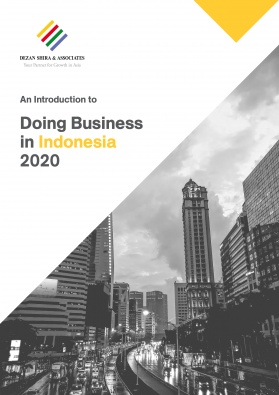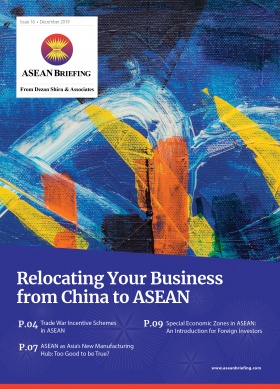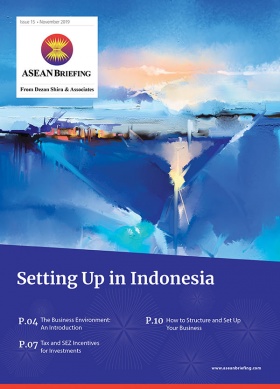Indonesia Issues Safety Guidelines for Businesses Post Lockdown
- On May 20, 2020, Indonesia’s Ministry of Health issued Decree 228/2020, which provides safety guidelines for businesses after the lockdown ends.
- The measures include requiring all employees to wear masks and implement social and physical distancing.
- Businesses should also prepare procedures on how employees can identify suspected COVID-19 symptoms and the steps to report them to the authorities.
Indonesia’s Ministry of Health issued Decree No. HK.01.07/MENKES/328/2020 (Decree 228/2020) on May 20, 2020, which provides safety guidelines that offices and industrial workplaces should implement once the lockdown period comes to an end.
The lockdown period is scheduled to end on June 4, although the government has reiterated that this is dependent on the spread of the virus. The country has so far recorded the second-highest number of COVID-19 cases in ASEAN behind Singapore but has the highest number of deaths.The issuance of this decree is part of the government’s so-called ‘new normal’ phase to push for economic revival while maintaining restrictions to contain the spread of the virus. So far, 100 regencies throughout the archipelago have been declared as green zones and have started implementing the ‘new-normal’ measures.
Businesses should monitor for announcements from the government related to COVID-19, which can be accessed here.
What are the safety guidelines for businesses if the lockdown ends?
If a business is located in a green zone, they are to implement a variety of safety measures aimed at containing any potential outbreaks at the workplace.
Companies need to make the wearing of masks mandatory in the workplace for all employees and visitors. The measurement of body temperatures is also mandatory prior to entering the workplace.
Within the workplace environment, businesses need to provide provisions to practice social and physical distancing in addition to hygiene and sanitation measures. There should also be measures to regularly clean and disinfect the workplace as well as procedures to identify and report employees showing symptoms.
Businesses should also establish whether employees have had contact with individuals classified as ‘Persons under Surveillance’ or ‘Patients under Surveillance’. If so, they are not to be allowed into the workplace and must be tested.
If an employee does showcase symptoms, the company can coordinate with local public health centers or agencies in order to test the person in question.
Employers are also reminded to ensure employees have their full rights if they have to undergo self-isolation/quarantine, such as the payment of salaries and the ability to take paid leave.
What if the lockdown is extended?
If the lockdown is extended, only businesses in 11 sectors are allowed to operate. These sectors are:
- Healthcare;
- Food and beverages;
- Energy;
- Public utilities;
- Communication services and media;
- Banking and financial services;
- Logistics and distributions;
- Hospitality;
- Construction and industry;
- Supermarkets; and
- Essential services.
If the business does fall under the aforementioned categories, the enterprise will need to establish a COVID-19 management team who will oversee the implementation of policies and procedures for employees to work safely.
There should also be a work-from-home policy to determine which employees are able to work from home and those that are needed to attend the workplace. Employers should keep in mind employees who have pre-existing conditions or are from a high-risk age group (45 and above).The business should reduce overtime hours and night shifts where possible and temperature checks prior to entering the work environment should be in place. Additionally, employees are required to wear masks.
The workplace should provide hygienic and sanitary facilities and implement social and physical distancing, while also having procedures in place to identify COVID-19 symptoms and report them to the authorities.
Promotion of COVID-19 education
Businesses are being encouraged to continuously update and educate their workforce on the virus and its developments in Indonesia. Covering subjects such as identifying symptoms, the causes of the virus, and how to lead a healthy lifestyle should be a priority.
About Us
ASEAN Briefing is produced by Dezan Shira & Associates. The firm assists foreign investors throughout Asia and maintains offices throughout ASEAN, including in Singapore, Hanoi, Ho Chi Minh City and Jakarta. Please contact us at asia@dezshira.com or visit our website at www.dezshira.com.
- Previous Article Indonesia’s COVID-19 Immigration Measures: Latest Updates
- Next Article The Singapore-China Fast Lane: Key Features







